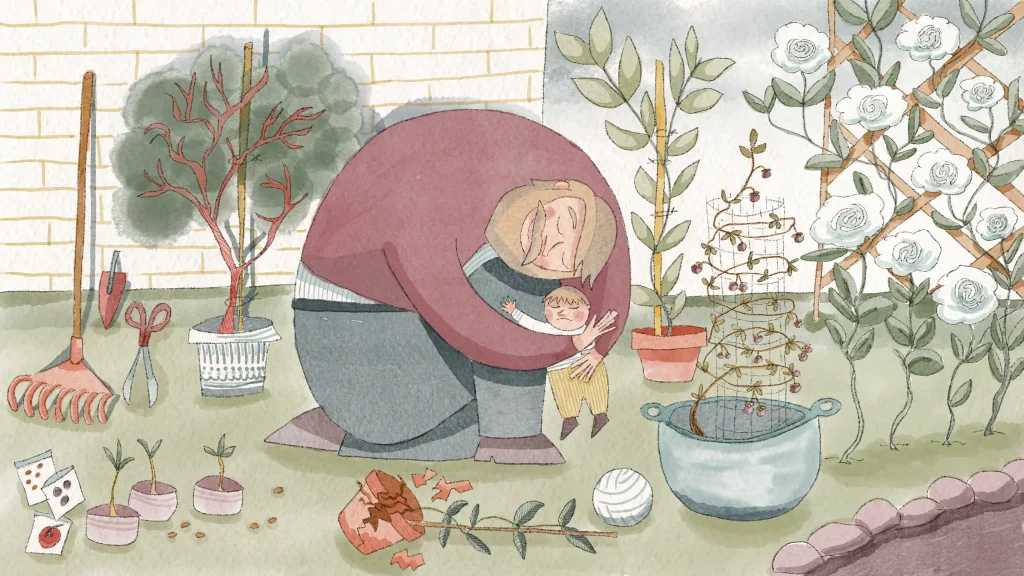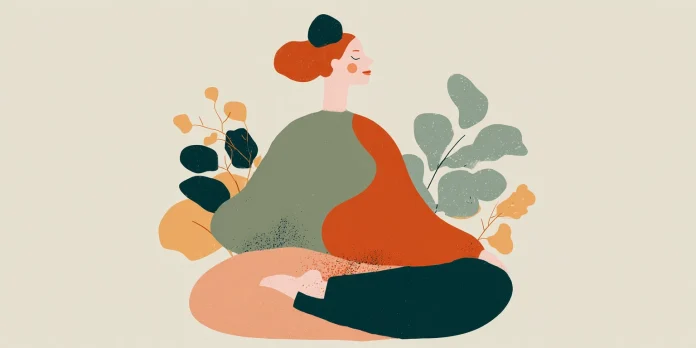Written by Malena Sanchez Moccero
Medically reviewed by Jazmin Galdino (Psychologist, Childhood Sleep Neuroscience and Perinatal Mental Health Specialist)
Art by Jouli Di Marco
Tired of time-outs and endless power struggles? Positive discipline offers a science-backed way to raise kids who listen, show respect, and thrive—without yelling, shaming, or bribes. It’s not about being permissive or losing authority. It’s about guiding children with empathy, connection, and firm boundaries that teach responsibility and resilience.
Parenting often feels like a mix of comedy and drama—sometimes straight out of Modern Family or Parenthood. Tantrums, endless “why’s,” and patience running thinner than Marge Simpson’s with Bart are universal struggles. The positive discipline approach offers a smarter way through the chaos—rooted in firm boundaries, empathy, and connection instead of yelling or bribes.
What Is Positive Discipline?
At its core, positive discipline is a parenting approach that replaces control and fear with dialogue, cooperation, and mutual respect. It is often confused with permissive parenting, but they are not the same. Positive discipline doesn’t mean letting children do whatever they want. Instead, it combines firmness with kindness, helping kids learn skills such as problem-solving, self-regulation, and empathy.
It’s also important to note the difference between positive discipline and respectful parenting. Both approaches share the belief that children should be treated with empathy and respect. Positive discipline emphasizes teaching skills and guiding behavior, while respectful parenting focuses strongly on validating emotions and creating a relationship based on trust. What unites them is that neither rejects limits—on the contrary, both emphasize clear boundaries delivered with warmth and consistency.
At the heart of this approach lies a powerful yet simple truth: there are no “good” or “bad” kids. Behavior is communication, and often what looks like defiance is a signal of unmet needs. Understanding whether a child is hungry, tired, or overwhelmed can change the way we respond and create more space for learning instead of punishment.
Why Positive Discipline Matters for Parenting Today
Modern parenting often feels like a constant negotiation: bedtime, homework, screen time, chores. Traditional methods like spanking, yelling, or strict punishments may stop misbehavior in the moment but are linked with long-term harm. The American Academy of Pediatrics warns that harsh discipline increases the risk of aggression, anxiety, and low self-esteem.
By contrast, supportive parenting strategies build cooperation, reduce tantrums, and strengthen the bond between parents and children. Research confirms this. In one community study, parents who attended seven-week Positive Discipline workshops reported less stress and fewer authoritarian or permissive behaviors after three months. Their children, in turn, showed fewer behavior problems and greater academic competence compared to a control group.
This evidence highlights what many families are experiencing at home: positive discipline is not just a trend, but a proven method for raising emotionally healthier kids.
Firm and Kind: Setting Boundaries Without Fear
At the core of positive discipline is the balance between firmness and kindness. Children need love and attention, but also clear boundaries that provide safety and structure. Traditional systems of rewards and punishments may create temporary compliance, but they don’t foster long-term growth. What works instead is setting expectations with empathy, considering the child’s stage of development, and teaching problem-solving skills.
For example, it’s unrealistic to expect patience from a toddler or full emotional control from a tired child—understanding this helps us respond with empathy, not frustration. When limits take into account what children are capable of at their age, they feel respected and guided rather than controlled.
Time-Out vs. Time-In: What Works Better?
One of the most practical shifts in positive discipline is moving from time-outs to time-ins. Instead of sending a child away to “think about what they did,” which can lead to shame and disconnection, parents are encouraged to stay present. The first step is helping the child regulate strong emotions. Once calm, the focus turns to reflection and problem-solving together. This transforms mistakes into learning opportunities rather than punishments.
The Science Behind Positive Discipline
Decades of psychology back this approach. Alfred Adler and Rudolf Dreikurs emphasized that children thrive when they feel connected and significant. When children feel respected and included, they are more likely to cooperate.
Modern studies echo these insights. Randomized controlled trials of positive discipline programs show that parents become less authoritarian, more cooperative, and more sensitive after completing structured interventions. Community-based parenting programs, from North America to Latin America and Asia, report declines in harsh discipline and improvements in children’s behavior and emotional well-being.
For example, the “Triple P” Positive Parenting Program has shown long-term reductions in child behavioral problems and dysfunctional parenting practices across multiple countries. Similarly, studies of Positive Discipline in Everyday Parenting (PDEP) and the “Day by Day” program in Chile confirm that these methods reduce physical punishment and strengthen family relationships in both high- and low-income settings.
Taken together, this research demonstrates that positive discipline not only reduces chaos at home but actively builds children’s emotional regulation, cooperation, and resilience.
Key Principles of Positive Discipline
- Connection before correction: Children are more willing to listen when they feel heard. Acknowledging feelings before redirecting behavior builds trust.
- Firm but kind boundaries: Limits keep children safe. Delivered respectfully, they teach responsibility without fear.
- Encouragement instead of bribes: Praise effort and progress rather than offering rewards that undermine intrinsic motivation.
- Focus on solutions, not punishment: Mistakes are opportunities to learn, not reasons for shame.
- Model the behavior you want: Children copy what they see. Staying calm and respectful teaches more than lectures or yelling ever could.
Common Misconceptions About Positive Discipline
One common misconception is that positive discipline is “too soft.” In reality, it is structured and consistent, avoiding fear and humiliation but not rules. Another concern is that it takes too long. While it requires patience up front, it reduces power struggles in the long run. Some worry it won’t prepare kids for the real world, but the opposite is true: emotional intelligence, problem-solving, and cooperation are essential life skills.
Practical Positive Parenting Strategies
- Pause before reacting: Take a deep breath to respond instead of react.
- Build routines: Morning and bedtime structures reduce daily battles.
- Offer limited choices: “Blue cup or red cup?” offers children a sense of control and autonomy, giving them the chance to make decisions within boundaries.
- Lead with empathy: Validate emotions before setting expectations.
- Practice self-compassion: No parent gets it right all the time—and that’s okay.
Raising Respectful, Resilient Kids
Children behave best when they feel respected, heard, and part of a team. Positive discipline shifts parenting goals from demanding obedience to fostering growth. It replaces fear with respect, and punishment with learning.
Kids raised with this approach are more likely to enter adolescence with empathy, cooperation, and strong emotional skills—the qualities that matter most for lasting success and well-being.
In essence, positive discipline represents a deeper shift in how we see children: from demanding obedience and treating them as passive recipients of our rules, to fostering growth and recognizing them as active participants in their own lives.






